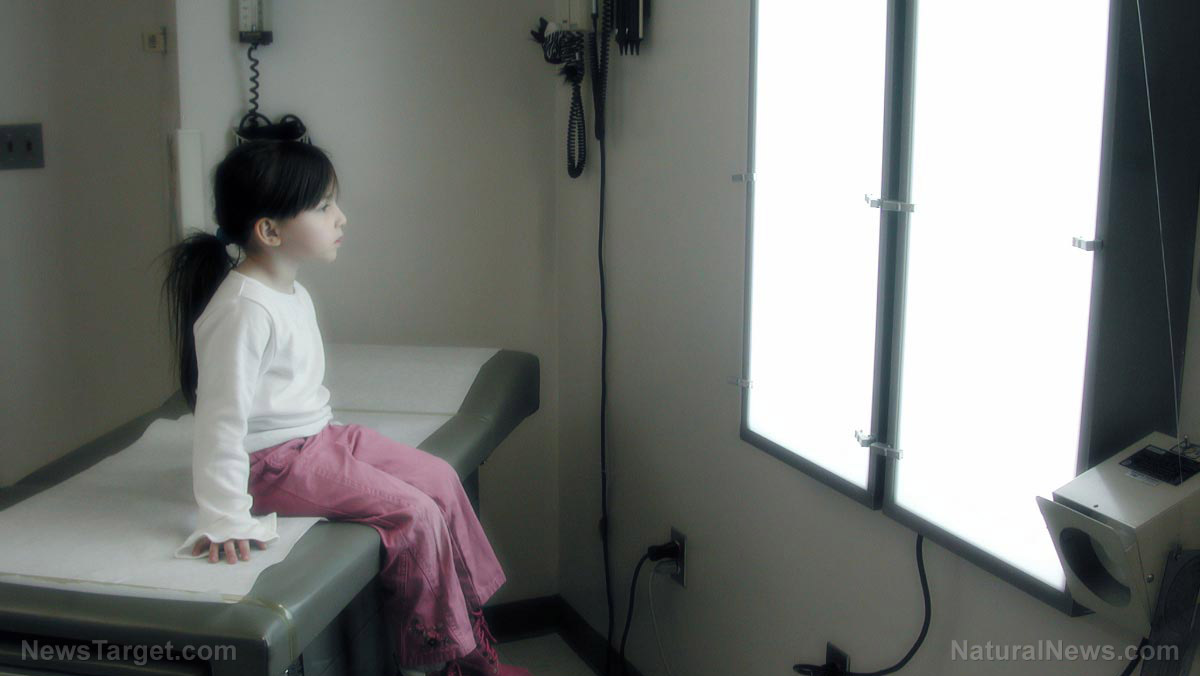
The American Academy of Pediatrics reports that more children have been subjected to these chemical restraints, which are generally antipsychotics that are administered with the goal of sedating them, because a greater number of children have been admitted to mental health facilities in recent years. They also found that drug restraints are typically used more often on minorities as well as those who come from low-income families and children with autism.
According to the group's analysis, there was a 141 percent rise in the use of restraint drugs, in addition to an increase in the length of inpatient stays among children. They reached their finding after looking at more than 90,000 hospitalizations related to mental health in 43 children's hospitals in the United States. They used a strict definition of pharmacological restraint as being the intramuscular or intravenous administration of heavy-duty antipsychotics.
They found that the rates of using drug restraints for children who have been diagnosed with bipolar disorders, somatic symptom disorders, eating disorders and disruptive disorders noted significant increases over time of anywhere between 40 percent and 323 percent.
When it comes to specific groups that are being subjected to this approach, economically disadvantaged children and racial minorities are disproportionately victimized. For example, children who were insured by federal programs like Medicaid had twice the likelihood of being restrained compared to those with private insurance, while younger black males also had double the likelihood of being restrained when compared to their white peers.
The practice is coming under fire, with the Citizens Commission on Human Rights International calling for physical and psychiatric restraints to be banned. A November report from the group sought legal protections banning “chemical and physical restraint and punitive seclusion rooms, not only in the U.S. but globally.”
Making the practice even more upsetting is the lack of safety data on the psychotropic drugs used as chemical restraints for children. Another problem is a lack of informed consent. In many cases, these drugs are administered to children without following proper procedures, such as explaining the potential side effects to the children or their caregivers.
One contributing factor could be the rise in mental health patient days registered between 2016 and 2021 of 138 percent. This may have led to a shortage of pediatric psychiatric resources, which means that facilities are relying more heavily on restraints.
Part of the rise in pediatric mental health patients is being blamed on the pandemic, which took a toll on many people’s emotional state, as did the lockdowns and other restrictions placed on the population.
All of the antipsychotic drugs used for chemical sedation carry FDA black box warnings
The five antipsychotic drugs the study targeted are strong nervous system depressants that can sedate young people very quickly. All of them contain “black box” warnings from the FDA outlining horrific side effects like increased mortality and the impairment of normal physical and mental functioning. Many of these drugs are linked to seizures, while some of them, such as olanzapine, aripiprazole and ziprasidone, have been linked to suicidal thinking and behavior.
Psychotropic drug expert Dr. Peter Breggin cautioned parents not to put their children on psychiatric medications. He said he hopes that drugging children will be viewed by society as a “huge and tragic mistake” and will be banned, much like other types of abuse.
This eagerness to sedate kids in the care of mental health facilities with pharmaceuticals is not surprising for an industry that loves to throw drugs at whatever problems people face, as evidenced by the outrageous increase in antidepressant prescriptions in the U.S. After all, antidepressants are a lot more profitable than meditation.
Medicating children does nothing to address the root of their problems, but it does give the bottom line a nice boost.
Sources for this article include:
Please contact us for more information.






















